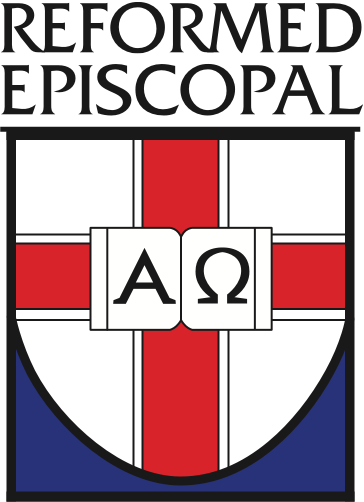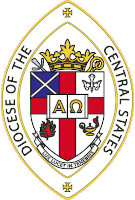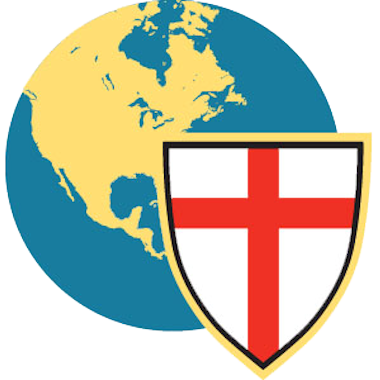Our Affiliations
memberships & partnershipsReformed Episcopal Church (REC)

The Reformed Episcopal Church (REC) was organized in New York City in 1873 by eight clergymen and twenty laymen who were formerly priests and members of the Protestant Episcopal Church. A long debate over the excessive ritualism and exclusive attitude of the Protestant Episcopal Church toward other denominations lay behind the separation. In the face of criticism and with the conviction that the evangelical and catholic nature and mission of the Protestant Episcopal Church were being lost, Bishop George David Cummins resigned as Assistant Bishop of Kentucky and transferred his Episcopal oversight to a new jurisdiction called the Reformed Episcopal Church. Doctrine and organization of the Reformed Episcopal Church are similar to that of her parent Church with several important exceptions.
- Holy Scripture is the highest authority in the Reformed Episcopal Church.
- The Reformed Episcopal Church vigorously holds to the plain understanding of the 39 Articles of Religion of the English Reformation and adopted them as the doctrinal standard of the Church at her founding.
- Clergymen ordained as Presbyters in other churches may be received into the ministry of the Reformed Episcopal Church. If their ordination is irregular, such orders are regularized by the laying on of hands of a Bishop. Members are admitted on letters of dismissal from other Protestant denominations.
- Worship is liturgical. At Sunday morning worship, the use of the Prayer Book, recently revised to conform with the 1662 Book of Common Prayer (BCP), is required. The 1928 BCP is also authorized for use. At other services the use of the Prayer book is optional while at any service extemporaneous prayer may be used by the minister.
- The triennial General Council of the Reformed Episcopal Church is not like the General Convention of the Episcopal Church USA since her bishops do not constitute a separate house but, rather, vote with the Clergy.
The Reformed Episcopal Church has doubled its number of parishes in the last fifteen years and seen a tremendous expansion of its foreign missions in the same time. Foreign missions are maintained in India, Liberia, France, Uganda, Brazil, Germany, Croatia, Sweden, Cuba, and Nepal. In India there is a primary school, hospital, and orphanage. In Liberia there are twenty parishes with a membership of over 3000.
There are three Theological Institutions within the United States (The Reformed Episcopal Seminary in Blue Bell, PA; Cranmer Theological House in Houston, TX; and Cummins Theological Seminary in Summerville, SC). The Reformed Episcopal Church is in fellowship through concordat with the Free Church of England (Otherwise known as the Reformed Episcopal Church in England) and Covenant Union with the Church of Nigeria (Anglican Communion). There are 13,422 members in 137 local parishes and missions in the REC.
The Diocese of the Central States

Due to the growth in parishes over the last 15 years, the Council of Bishops of the Reformed Episcopal Church made the unanimous decision in 2007 to reorganize and form a new diocese. Thirteen parishes were selected from each of the three existing dioceses in the United States to form this new missionary diocese. The desire was to have parishes in closer proximity to one another and to promote the expansion of the Church in new areas. The new diocese is now the Diocese of the Central States and it encompasses eight states: North Carolina, Virginia, West Virginia, Tennessee, Alabama, Kentucky, Ohio, and Indiana. Under the leadership of the Right Reverend Peter Manto, The Diocese of the Central States has grown to some 20 parishes.
The Anglican Church in North America (ACNA)

Since the late nineteenth century various parishes, clergy and laity within the Protestant Episcopal Church of the United States and the Anglican Church of Canada disaffiliated themselves from the Anglican provinces due to the increasing accommodation by these bodies of un-Biblical and un-Anglican practices and teaching. The need for formation of an orthodox Anglican Province in North America became most apparent in the first decade of this century.
The Anglican Church in North America was initiated at the request of the Global Anglican Future Conference (GAFCon) in June 2008 and formally recognized by the GAFCon Primates – leaders of Anglican Churches representing 70 percent of the active Anglicans globally – on April 16, 2009 after a thorough examination of the Anglican Church’s leadership, organizational structure, proposed constitution and proposed canons.
The Reformed Episcopal Church is an independent province within the ACNA, recognizing The Most Reverend Dr. Foley Beach as the Archbishop of ACNA, yet remaining under the authority of its own Presiding Bishop and Episcopate.
